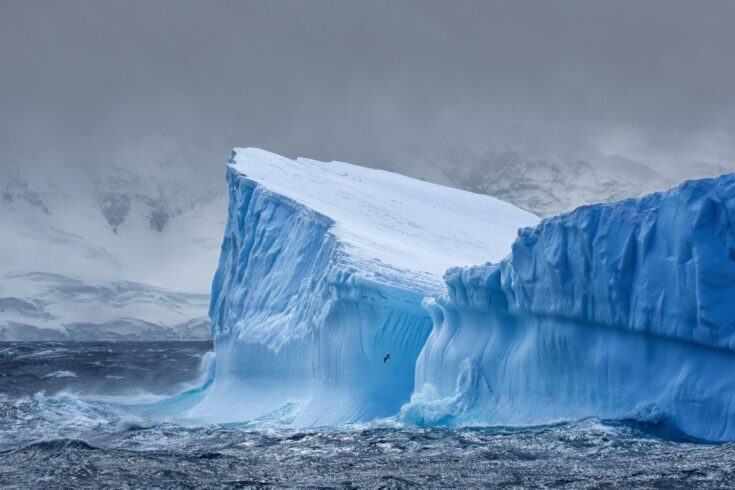The Natural Environment Research Council (NERC) is committed to polar research and its importance to environmental science, and we are continuing to invest in world-leading polar research facilities.
Over the past two years our priority has been to prevent transmission of COVID-19.
With the subsequent delay in the construction of the RRS Sir David Attenborough most polar marine science cruises and major Antarctic field science projects were unable to take place when requested.
As a result, NERC is encouraging flexibility from researchers seeking to develop new applications for polar research that require marine or field support.
Prioritisation and planning
RRS Sir David Attenborough completed a successful logistic season in 2021 to 2022, resupplying research stations and supporting construction projects as part of the Antarctic Infrastructure Modernisation Programme (AIMP).
The ship is currently part-way through delivery of the 2022 to 2023 season which includes a polar water trials cruise.
We are now prioritising the delivery of funded polar research programmes, while continuing to support the community to develop new projects.
Flexibility
We are prioritising funded research and ongoing construction work as part of AIMP.
We encourage scientists to be flexible as they develop new project applications. Particularly those that require use of RRS Sir David Attenborough as a marine science platform or requiring deep field polar support, or both.
This flexibility is not needed for projects requesting access to the UK Arctic Research Station, which is unaffected.
Digital approaches to polar research
NERC is committed to placing data and digital technologies at the heart of current and future UK environmental science, particularly during these busy times for polar infrastructure.
We encourage researchers to consider applications that require only nominal associated ship time by using:
- existing research data
- remote sensing information
- other digital approaches, such as the use of autonomous vehicles (for example, National Oceanography Centre (NOC) Marine Autonomous Robotic Systems facilities)
For example, marine projects such as the Ocean Regulation of Climate by Heat and Carbon Sequestration and Transports used a combination of data collection (including from Earth observation sources), analyses and computer simulations.
This approach radically improved the ability to measure, understand and predict the circulation of the Southern Ocean and its role in the global climate.
For new marine projects in the polar regions requiring significant support but not travelling through ice, there is the opportunity to request access to the RRS Discovery and RRS James Cook. These ships are operated by NOC.
Applications
Applications for future science cruises and polar fieldwork are still welcome, particularly where projects do not require significant use of:
- RRS Sir David Attenborough as a marine science platform
- deep-field polar infrastructure such as the use of aircraft from Rothera and Halley Research Stations
We encourage researchers to be flexible with where and how they plan to undertake research.
While there will be limited opportunities to schedule new large projects, it may be possible to plan for simultaneous fieldwork or identify opportunities with other projects.
In the next five years, the RRS Sir David Attenborough will be undertaking:
- science cruises within the Scotia Sea, Weddell Sea, Western Antarctic Peninsula and Amundsen Sea
- science support transit routes between South Georgia, South Orkneys and Rothera
Support
Potential applicants must contact the NERC marine planning team or British Antarctic Survey (BAS) operations, or both, to discuss details and possible timelines of any projects being considered.
Applicants should note the cruise prioritisation criteria.
Further information
As we adapt our schedules and complete AIMP we will continue to update researchers and support projects to maintain the UK’s position as a world leader for polar science.
Up-to-date information can be found on the following web pages:
Top image: Credit: Ray Hems, E+ via Getty Images

